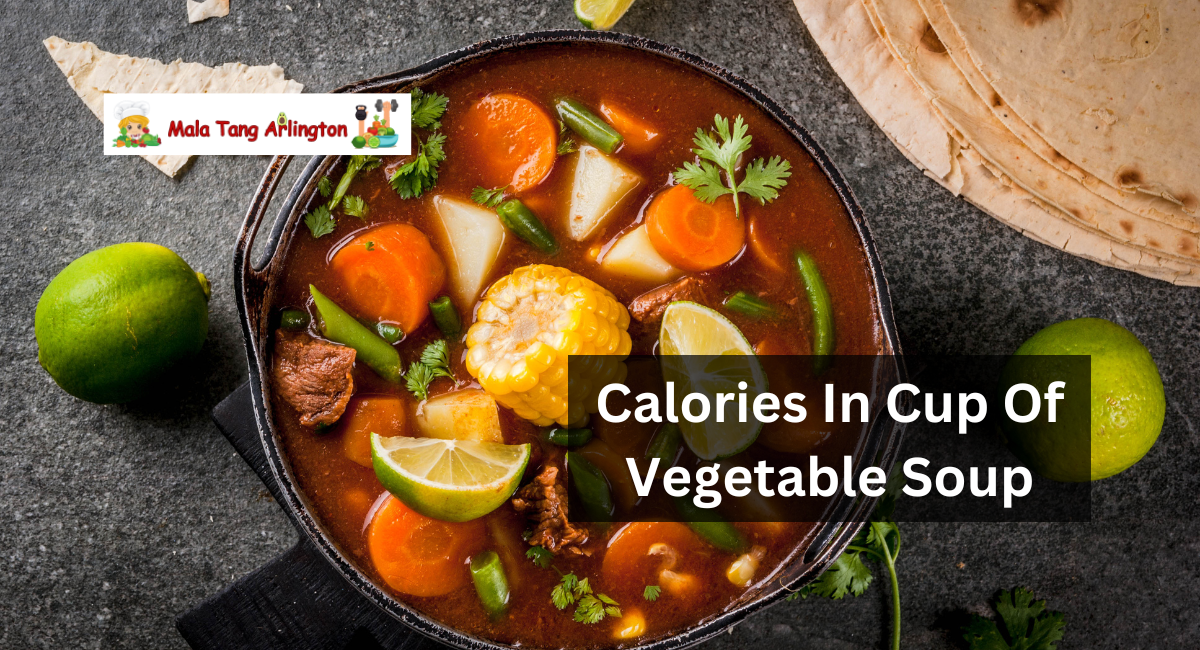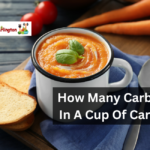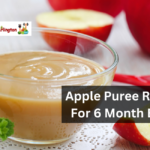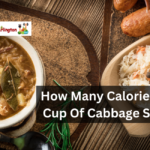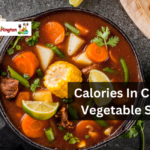Few foods are as pleasant and nourishing as a steaming cup of vegetable soup regarding healthy eating. It not only warms your soul, but it also supplies vital nutrients.
In this post, we’ll look at the calories in a cup of vegetable soup, as well as the various ingredients and their health advantages.
Calories In Vegetable Soup
A one-cup portion of homemade vegetable soup comprises 50-100 calories on average. The exact calorie count, however, can vary depending on the components used and the serving size.
What Are the Calorie Influencing Factors?
The calorie content of vegetable soup can be influenced by various factors, including the type and quantity of vegetables used, the cooking process, and any additional additions such as oil, cream, or cheese. Using lean veggies and avoiding high-calorie branches can assist in lowering the calorie amount.
Nutritional Information For Vegetable Soup
Calories in vegetable soup and other dietary data are significant for persons with unique health goals and circumstances. Making your veggie soup ensures that the calories are nutrient-dense.
Pre-packaged foods, such as frozen and canned items, include more calories, carbohydrates, sodium, and sugar, all of which are linked to various health problems when consumed in excess.
The following nutrients are found in 1 cup of homemade vegetable soup prepared with tomatoes, green snap peas, carrots, corn, potatoes, butter beans, okra, green beans, onions, celery, and fresh parsley:
- 2 g total fat
- Sodium content: 559 mg
- 15 g total carbohydrates
- 3 g dietary fiber
- 3 grams of sugar
- 4 g proteins
What Are The Key Ingredients For Vegetable Soup?
An excellent soup can be a simple list of ingredients or a sophisticated preparation. Hearty vegetable soup is quick to make, and the leftovers may be utilized for meal prep for the rest of the week.
- Use low-sodium vegetable stock or vegetable broth to keep things vegan or vegetarian. This enhances the flavor of the soup.
- Veggies: This depends on your preferences and any dietary sensitivities you may have. Carrots, celery, potatoes, and tomatoes are common ingredients in traditional vegetable soups. Zucchini, squash, green beans, broccoli, green peas, yellow corn, bell pepper, and spinach can also be included.
- Legumes, such as lentils and beans, can also be used as protein sources. Minestrone, for example, includes both red kidney and white beans.
How To Store The Vegetable Soup?
If you’re attempting to lose weight, it’s ideal to have it in your fridge for a nutritious snack or a quick supper!
This soup reheats wonderfully, so make a significant quantity and enjoy it all week.
Refrigerate vegetable soup in an airtight container for up to 4 days. Freeze cold soup for up to 4 months in zipped bags or a freezer-safe container. Directly reheat or thaw on the stovetop.
What Are The Finest Low-Calorie Soup Vegetables?
When making a low-calorie vegetable soup, choose vegetables such as leafy greens, zucchini, cauliflower, and bell peppers. These vegetables bring flavor and minerals without adding a lot of calories.
How Can I Make Veggie Soup Filling?
Make a more satisfying soup by adding protein, fiber, or both. Beans, lentils, and edamame are other alternatives. You might also incorporate lean protein such as rotisserie chicken, ground turkey, or sausage. You could also bring some pasta, rice, couscous, or quinoa. You may need to add more broth to the soup for these options.
Is It Possible To Lose Weight By Eating Vegetable Soup?
Yes, including vegetable soup in your diet can help you lose weight. Its high fiber content keeps you fuller for longer, making it easier to control your total calorie consumption. Furthermore, the vitamins and minerals in vegetable soup benefit your general health.
Is Veggie Soup Appropriate For All Diets?
Yes, vegetable soup is quite adaptable and may be tailored to meet various dietary needs. Whether you eat a vegetarian, vegan, or gluten-free diet, vegetable soup can be tailored to your preferences. For vegan and vegetarian choices, use vegetable broth and a range of plant-based components, and use gluten-free grains if necessary.
Is It Possible To Create Vegetable Soup In The Slow Cooker?
This soup is simply adaptable for use in a slow cooker. To the slow cooker, add everything except the green beans, corn, and peas. Cook for 3.5 hours on low heat. Open the container and add the green beans, peas, and corn. Cook for another 30 minutes or until the green beans are tender but not mushy—season with salt and pepper to taste.
To summarize, a cup of vegetable soup is a healthy and nutritious complement to your diet. It has a low-calorie count, making it ideal for those watching their weight. Whether handmade or purchased, vegetable soup has several health benefits that make it an excellent dietary choice.
Thanks for reading the article..
